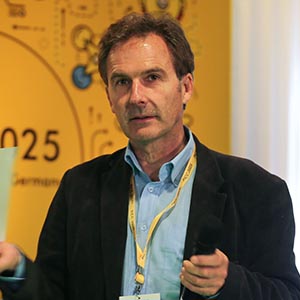FICC: 9th Future of Information and Computing Conference
15-16 October 2026 | Berlin, Germany
Affiliated to the Future Technologies Conference (FTC)
The 9th edition of the Future of Information and Computing Conference (FICC) is a premier international forum held annually since 2018. FICC brings together a global community of researchers, academics, and industry experts to advance computational theories, data-driven intelligence, and secure digital systems with broad scientific and societal impact.
Evolving from its origins as the Future of Information and Communication Conference, FICC reflects the growing centrality of computing in contemporary research and innovation. Recognized by its attendees as a top-tier conference, FICC provides a high-quality platform for the presentation of rigorously peer-reviewed research that contributes to the development of scalable, intelligent, and trustworthy computing frameworks shaping future inquiry and technological progress.
FICC is affiliated to the Future Technologies Conference (FTC), with its proceedings published as a dedicated volume within the FTC Proceedings by Springer in LNNS series.
PROGRAM CHAIR

Pascal Lorenz
University of Haute Alsace, France
The related topics include, but are not limited to:
- Advanced Data Science & Big Data Analytics
- Data Mining & Knowledge Discovery
- AI-Augmented Data Science & Predictive Modeling
- Semantic Computing & Knowledge Representation
- Information Retrieval & Search Systems
- Recommendation & Information Filtering Systems
- Natural Language Understanding & Semantic Analytics
- Machine Learning for Information Systems
- Deep Learning for Information & Data Analytics
- Explainable, Ethical & Responsible AI
- High-Performance & GPU-Accelerated Data Computing
- Cloud & Distributed Computing for Information Systems
- Edge, Fog & Data-Centric Computing Architectures
- Future Computing Architectures for Information Processing
- Cybersecurity, Privacy & Trust for Information Assets